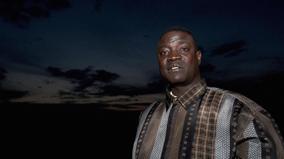Réussir... À quel prix?
Documentaire brossant le portrait d'une certaine jeunesse noire qui a réalisé ses rêves à force de détermination.Ce documentaire est issu du projet La tête de l'emploi, qui vise à mettre fin au racisme direct et à la discrimination systémique dans les milieux de travail au Canada. Il cherche également à suggérer de nouvelles stratégie pour lutter contre le racisme auquel sont confrontés les minorités visibles et les autochtones.

Details
Documentaire brossant le portrait d'une certaine jeunesse noire qui a réalisé ses rêves à force de détermination.
Ce documentaire est issu du projet La tête de l'emploi, qui vise à mettre fin au racisme direct et à la discrimination systémique dans les milieux de travail au Canada. Il cherche également à suggérer de nouvelles stratégie pour lutter contre le racisme auquel sont confrontés les minorités visibles et les autochtones.
-
participationCarl JamesDavid FindlayMichele JordanChristene BrowneSharon McMillanLarry SparksSunset RoachPermell Ashby
-
directionSobaz Benjamin
-
NoneSobaz BenjaminAli ReggabRoslyn Power
-
soundChris Miller
-
picture editingSobaz BenjaminPrem Sooriyakumar
-
sound editorPrem Sooriyakumar
-
researchCarl James
-
titlesGaspard Gaudreau
-
online editingDenis Pilon
-
translationJérôme BlanchetKathleen Fleming
-
subtitlingJérôme BlanchetKathleen Fleming
-
marketing officerJenny Thibault
-
technical coordinationJean-François Laprise
-
administrationHélène RegimbalDenise DesLauriers
-
administrative teamMirabelle BélangerMiya KondoLise Lévesque
-
delegate producerKaren Cho
-
producerPatricia Bergeron
-
executive producerRavida DinYves Bisaillon
















